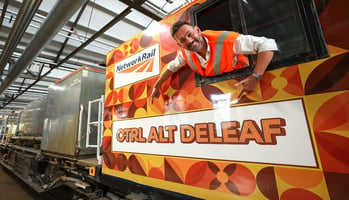Remember that blog we wrote about Ryanair?
‘Wow - they’re not handing this well, are they?’.
Those were the words of my wife.
And not working in PR, comms, or media relations, it’s not often she speaks up about how an organisation is handling a story.
But she’s not wrong.
Europe’s biggest low-cost airline has attracted plenty of criticism for the way it has handled the story of a man who could not fly after being injured during the mass stabbing attack on the LNER train.
Stephen Crean suffered injuries to his hand, back, and head after confronting the attacker.
And those injuries meant he could not fly to Austria a few days later to follow Nottingham Forest as they took on Sturm Graz.
Despite being widely praised for heroics, Ryanair decided he should not be refunded for the flights.
As the story grew, a spokesperson for the airline said: “All Ryanair air fares are non-refundable, which is why we strongly recommend passengers take out travel insurance in order to protect themselves if they can’t travel.”
Wow. Stubbornly refusing to break from policy is one thing. Suggesting a stabbing victim should have had travel insurance is astonishingly tone-deaf.
Here’s a selection of damning, yet completely avoidable, headlines:
Turbulent stuff, which would be more than enough to send most brands into panic mode and reaching for the crisis media management plan.
But Ryanair tends to operate differently – usual crisis communication rules do not necessarily apply.
And the question is whether the budget airline will be bothered by the stinging criticism.
It’s boss, Michael O’Leary, never tends to travel too far away from controversy.
And the airline is no stranger to critical media coverage. It seems to thrive off it.
In a previous interview with the Wall Street Journal, the boss said that: “The funny thing we’ve learned over the years is actually the bad publicity sells far more seats than the good.”
He said it prompts people to look up the company and discover rock-bottom fares in the process.
In a recent episode of the BBC podcast Good Bad Billionaire, he was described as a “walking PR stunt”. Presenter and BBC business editor Simon Jack said that for O’Leary “controversy has been an asset rather than a liability”.
And we’ve previously highlighted the company’s polarising approach to social media in our blogs.
But in this case, I’m not convinced that Ryanair’s ‘all publicity is good publicity’ mantra works.
Its response has put the brand into a story that has dominated media coverage and social media posts for a week.
And it has put it up against the hero, making it look heartless.
People are fascinated by the stories of other people. And they love tales of unusual heroics and bravery.
It’s a story that demands a human response, not a ‘computer says no’ one.
Praise Stephen for his actions, show empathy for what he had been through, and offer the refund. And then, if you still feel you need to, make it clear that this is an exception and normally flights cannot be refunded.
That gesture would have cost little. But the headlines would have looked much different.
Sometimes, doing the right thing is the best approach, no matter how much you believe you thrive on bad publicity.
Compare Ryanair’s response to what Nottingham Forest has done. The Premier League club gave Stephen a seat in the director’s box for its game this weekend. And it donated £10,000 to a fundraiser aiming to give him financial support while he recovers from his injuries.
The story reminds me a little of the crisis media management incident and PR mess Waitrose created after telling an autistic worker he could no longer work for them after his family had asked if he could be offered “just a few paid hours”.
It was a similarly avoidable crisis that just needed a little more thought about how its actions and statements would play out in the court of public opinion.
ASDA came to the rescue in that story and offered Tom paid work.
I wonder if a rival airline will do something for Stephen – it would be an easy PR win for one of the other low-cost airlines.
Media First are media and communications training specialists with nearly 40 years of experience.
We have a team of trainers, each with decades of experience working as journalists, presenters, communications coaches and media trainers.
Click here to find out more about our crisis communication training courses.






